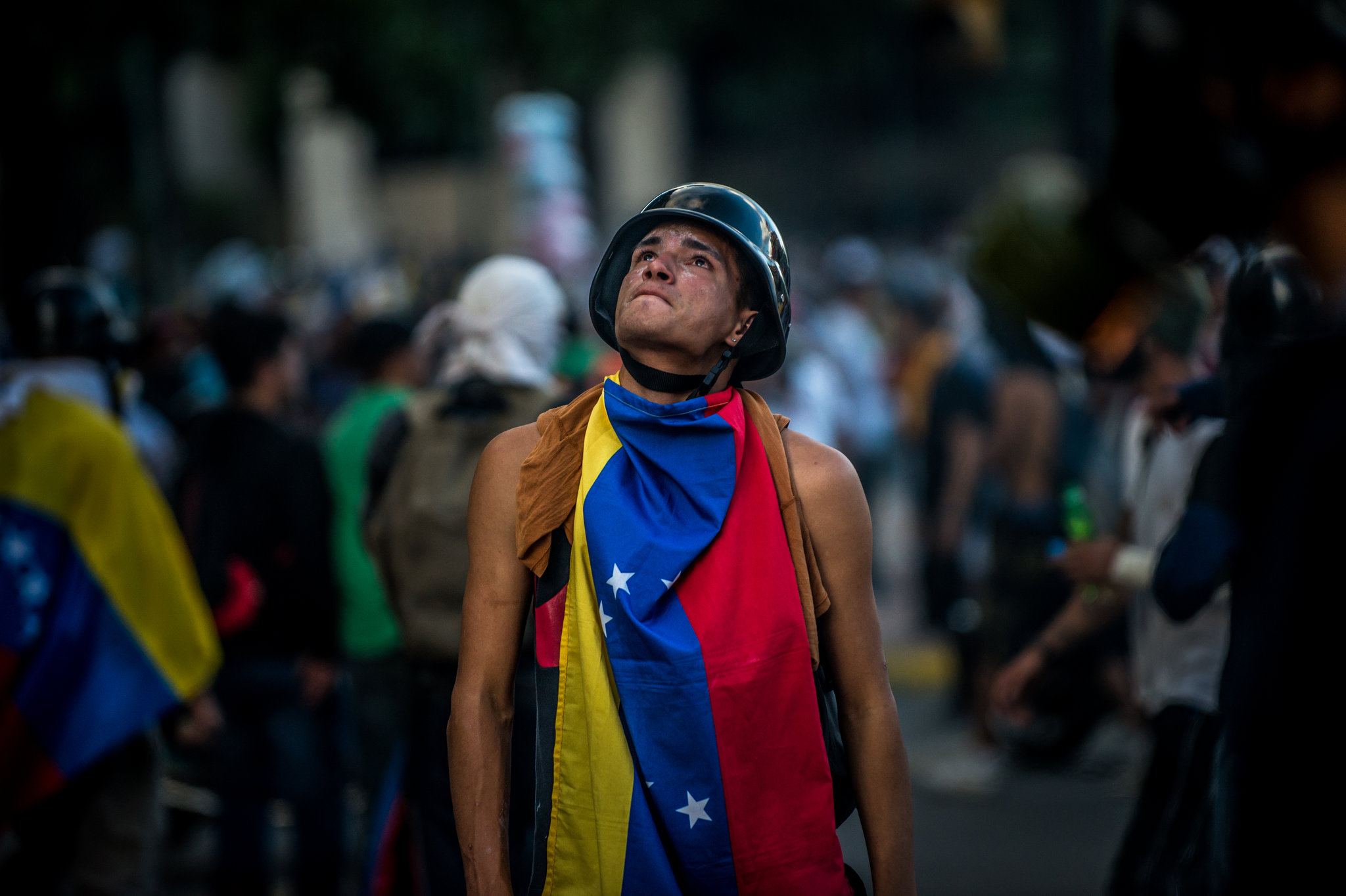
El diario The New York Times respaldó hoy las sanciones impuestas por el Gobierno estadounidense al presidente venezolano, Nicolás Maduro, al que acusó de haber caído en una deriva “dictatorial”. EFE
En un editorial, el periódico recuerda que las sanciones personales de EE.UU. contra el presidente venezolano le sitúan junto a otros líderes como el sirio Bashar al Asad, el norcoreano Kim Jong-un o el zimbabuense Robert Mugabe, cuya “codicia rapaz por el poder ha llevado a sus países a la ruina”.
“Ya no hay duda de que este es el lugar que corresponde al señor Maduro”, defendió el Times, recordando la difícil situación económica de Venezuela y el reciente voto de la Asamblea Nacional Constituyente impulsado por el Ejecutivo.
El texto, titulado “El camino hacia la dictadura del señor Maduro”, considera que por ahora la vía de las sanciones contra figuras del Gobierno venezolano es la mejor para presionar en favor de una salida a la crisis en el país latinoamericano.
Sin embargo, el Times subraya que la presión de EE.UU. no es suficiente y debe ir acompañada de medidas por parte de la Unión Europea y de los países latinoamericanos.
El objetivo, señala, debe ser lograr que Maduro negocie con la oposición y garantice unas elecciones libres, el respeto para las instituciones democráticas, la liberación de los presos políticos y que permita el suministro de ayuda humanitaria internacional que necesita la población.
A continuación el editorial en inglés:
Mr. Maduro’s Drive to Dictatorship
Following a contentious vote on Sunday that effectively set Venezuela on the path to outright dictatorship, the United States has imposed personal sanctions on President Nicolás Maduro, putting him in the rarefied company of sitting leaders like Syria’s Bashar al-Assad, North Korea’s Kim Jong-un and Zimbabwe’s Robert Mugabe, whose rapacious greed for power has brought their countries to ruin. There is no longer any question that this is where Mr. Maduro belongs.
No nation should have to suffer such a leader. And Venezuela, with possibly the world’s largest oil reserves, had the chance to be one of South America’s leading democracies. But overdependence on oil has led to political and economic turbulence, which became disastrous when Mr. Maduro sought to emulate his left-wing predecessor, Hugo Chávez, with lavish public spending that falling oil prices and chronic mismanagement rendered unsustainable.
Today Venezuela is a basket case. The estimated inflation rate for 2017 is 720 percent; 80 percent of Venezuelans live in poverty, suffering from malnutrition, illness and outright hunger, while corrupt politicians and their military allies shamelessly enrich themselves. Mr. Maduro’s response has been to assail spreading street protests with an iron fist and to erode the power of the National Assembly, in which his opponents have a majority.
More than 120 people have died in several months of protests. The deadliest day was Sunday, when Mr. Maduro brought to a vote his transparently power-grabbing plan to elect a tame Constituent Assembly to write a new Constitution that would tighten the government’s hold on power, and in the meantime allow the president to dismiss any branch of government deemed disloyal. The opposition boycotted the vote, allowing Mr. Maduro to claim victory despite what appeared to be a small turnout. Early on Tuesday, two opposition leaders already under house arrest were seized by state security agents.
Countering Mr. Maduro’s drive to dictatorship is a challenge for his domestic and foreign opponents. Boycotting Venezuelan oil or oil-related businesses would precipitate a humanitarian crisis; leaving Mr. Maduro to his ways could lead to the radicalization of his opponents and uncontrolled violence. Efforts in the Organization of American States to suspend Venezuela in June were thwarted by the country’s ideological allies and some Caribbean nations that Caracas supplies with cheap oil. Any sanctions by the United States — aside from the dubious moral authority of the Trump administration — feed Mr. Maduro’s claims of an “imperial” America seeking to crush Venezuela.
The individual sanctions on Mr. Maduro, under which all his American assets are frozen and Americans are barred from doing business with him, come on the heels of similar sanctions on other Venezuelan officials, with the threat of more to come. They are for now the best way to pressure him and his allies. But pressure from the United States is not enough: European and Latin American nations should join in the quarantine of Mr. Maduro and his cronies while offering them a chance to negotiate with the opposition on ensuring free elections, respecting democratic institutions, releasing political prisoners and allowing the supply of urgently needed international humanitarian assistance.
By THE EDITORIAL BOARDAUG. 3, 2017


No hay comentarios.:
Publicar un comentario
Nota: sólo los miembros de este blog pueden publicar comentarios.